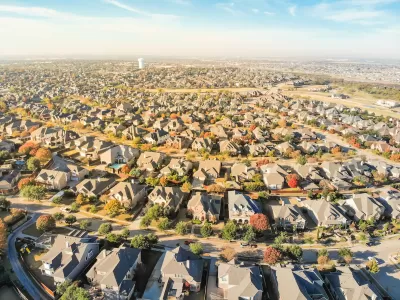A new book highlights the power of zoning to change communities for the better.

In an interview with Governing’s Carl Smith, Sara Bronin outlines the major points in her new book, Key to the City: How Zoning Shapes Our World.
Through the book, Bronin hopes to elevate the role of zoning in the housing and development discourse and highlight how zoning codes subtly — and not so subtly — shape and improve American communities.
State and local policymakers shouldn't feel hamstrung by zoning codes that are often out of date and don't reflect the values we have today. My book is a call to action for anybody who can influence zoning codes to modernize them for the better, to update them to ensure that they are being used for good.
As Bronin explains, “Zoning has cumulative effects on individual decisions and individuals’ freedom to choose how they want to live.” Zoning can impact how close your home is to a hospital or a supermarket and whether your child can ride a bike or walk to school.
More crucially, zoning determines what kind of housing can be built and where. Today, experts like Bronin and others blame zoning codes in large part for limiting the housing supply and driving up housing costs.
But zoning can shape more resilient, sustainable communities, too: in Tucson, Arizona, the zoning code calls for drought-tolerant landscaping, which helps the city reduce its water use. In Hartford, Connecticut, where Bronin served as head of the planning and zoning commission, zoning ordinances include street trees and green infrastructure, as well as provisions for new bike lanes and sidewalks.
FULL STORY: Is Zoning Government's 'Most Significant Regulatory Power'?

Alabama: Trump Terminates Settlements for Black Communities Harmed By Raw Sewage
Trump deemed the landmark civil rights agreement “illegal DEI and environmental justice policy.”

Planetizen Federal Action Tracker
A weekly monitor of how Trump’s orders and actions are impacting planners and planning in America.

Why Should We Subsidize Public Transportation?
Many public transit agencies face financial stress due to rising costs, declining fare revenue, and declining subsidies. Transit advocates must provide a strong business case for increasing public transit funding.

Understanding Road Diets
An explainer from Momentum highlights the advantages of reducing vehicle lanes in favor of more bike, transit, and pedestrian infrastructure.

New California Law Regulates Warehouse Pollution
A new law tightens building and emissions regulations for large distribution warehouses to mitigate air pollution and traffic in surrounding communities.

Phoenix Announces Opening Date for Light Rail Extension
The South Central extension will connect South Phoenix to downtown and other major hubs starting on June 7.
Urban Design for Planners 1: Software Tools
This six-course series explores essential urban design concepts using open source software and equips planners with the tools they need to participate fully in the urban design process.
Planning for Universal Design
Learn the tools for implementing Universal Design in planning regulations.
Caltrans
Smith Gee Studio
Institute for Housing and Urban Development Studies (IHS)
City of Grandview
Harvard GSD Executive Education
Toledo-Lucas County Plan Commissions
Salt Lake City
NYU Wagner Graduate School of Public Service





























